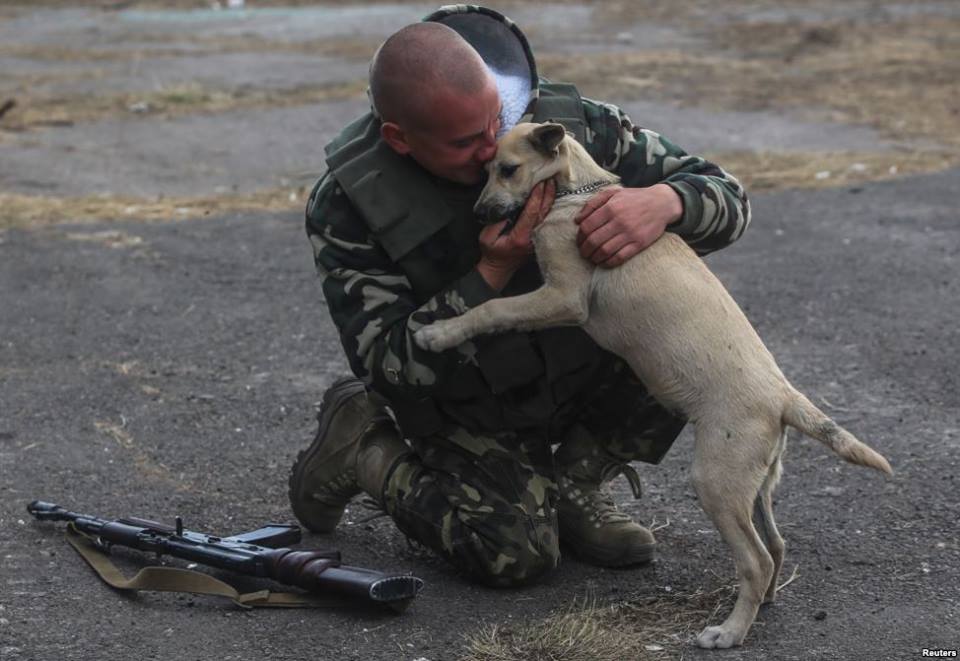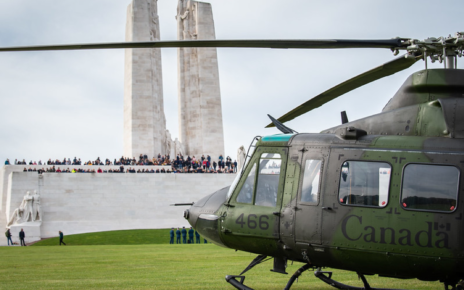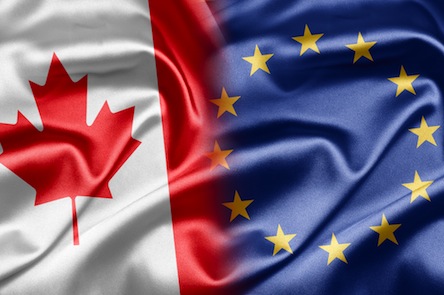The war in Ukraine has claimed thousands of lives with soldiers continuing to fight in the violent area on the outskirts of Donbas. But for many Ukrainian soldiers, the greatest battles are the ones being waged in their own minds.
According to a recent report released by Ukraine’s Defence Ministry, 597 servicemen have died from non-combatant related deaths in the past two years, accounting for nearly a third of the total deaths. What is shocking, however, is that a majority of those deaths are a result of suicide, which has been directly correlated to the rise and mistreatment of Post Traumatic Stress Disorder (PTSD) and mental health issues in soldiers.
Soldiers in the field of battle are no strangers to mental health problems, and those fighting in the Ukraine war are no different. A year and a half since the Ukrainian government launched the Anti-Terrorism Operation (ATO) in eastern Donbas, psychologists are now learning how to treat soldiers and volunteers returning from war with what has been dubbed the “ATO syndrome.”
A form of PTSD, symptoms of this syndrome encompass a range of ailments including: hyperactivity, sleep and appetite disorders, avoiding conversation, and intrusion—which are repeated imposing spontaneous memories that occur while the person is in the ‘here and now.’
“Hundreds of soldiers were coming back changed people, and their newfound PTSD drove many to drink heavily, abuse narcotics, and engage in other dangerous, unhealthy activities,“
explains Kalyna Kardash, founder of Hero’s Companion, a Canadian organization that works to address the growing problem of PTSD in Ukrainian soldiers and veterans through service and therapy dogs.
Kardash, who had followed the Ukraine crisis from its earliest stages, started the organization after noticing pictures and stories emerging of Ukrainian soldiers “adopting” stray dogs and cats into their battalions. “The soldiers would talk of how the dogs had become like part of their family on the front, how they provided them with even temporary relief from the constant pressures of war, and how they even saved their lives by alerting them to oncoming rocket shelling.”
Prompted by the alarming rise in suicide rates and PTSD among returning soldiers, Kardash sought to capitalize on the bond created between Ukrainian soldiers and dogs by bringing it into the rehabilitation sphere for both physical and psychological recovery.
Other Canadians are also helping her in this venture. This August, in partnership with Courageous Companions, an organization that has trained over 300 service dogs for veterans of the Canadian Armed Forces, four trainers travelled to Ukraine to help “train the trainers” and share their knowledge and experience to help start the programs. Because of the extensive experience of some of the Canadians with training explosive detection, search and rescue, tracking, and other tasks performed by military dogs, they also began training dogs for the Ukrainian army to be used at the front. This was particularly useful for mine and explosive detection, which is a large problem in both military and civilian areas in eastern Ukraine.
Currently working in Ukraine, Kardash believes that many soldiers have returned from the front lines with psychological injuries that they themselves were unaware of or did not understand.
“War is an extremely demanding experience for even the best trained and mentally prepared soldiers, but in Ukraine, many of the volunteers and regular Ukrainian forces at the front had minimal to no training when it came to psychological preparedness.”
The war in Donbas is also a conflict fuelled by youth, further aggravating the issue. Children and immature people are the most susceptible to PTSD, and there is an entire generation of 20-year-olds fighting in Donbas and training fields today.
Another problem in Ukraine is the strong social stigma associated with mental health and seeking psychological help, especially for the men. According to Kardash: “The men don’t want to seem weak or less than capable of returning to their civilian lives, and there is a lack of understanding that transition to civilian life takes time and sometimes even a ‘treatment’ plan, just as you would prescribe to someone returning with a physical injury.”

Some psychologists see this reluctance as a remnant of Soviet medical practices that focused on external ailments and perceived psychology as connected to political questions.
“To a large degree mental health professionals are regarded with a high degree of scepticism by these men, and many want to avoid being labelled as ‘crazy’ by their peers and families,”
explains Kardash. Many soldiers, however, simply fear that psychologists will prevent them from serving in the army again.
Although the government has acknowledged these issues, efforts at establishing rehabilitation centres are slow and often lack necessary funding. “The overall problem is that in reality the army does not have psychologists,” claims Ukrainian soldier, Fedir Kalenychenko. “There is one person per battalion, but the person usually isn’t qualified, and they need to see a psychologist themselves after everything.”
The reason behind this is that much of the government’s focus and funding is still on the eastern front in Ukraine. Consequently, rehabilitation has become a secondary priority, with most of the vital services provided to soldiers dependant on volunteers who were present when the crisis first began.
Despite this reality, Ukraine has found new creative, and typically non-traditional methods to deal with mental health issues. For instance, with www.health-canada-pharmacy.com/valium.html, an effort was put in motion to provide military chaplains, whom soldiers are more likely to turn to in times of psychological crisis, with basic psychological training. This would provide them with essential tools and advice on how to help affected soldiers seek out professional psychological care.
Kardash also remains hopeful of her work and of those like her. “One day we had a Kyiv battalion unexpectedly come visit us at the training centre. When they first came to us they were sitting around the table, very stiff and serious,” she recalls. “Well, after only about 15 minutes [of seeing the dogs] their demeanours had completely changed. Many of them began playing with the dogs, petting them, rolling around on the grass with them, and noticeably began to de-stress. We almost couldn’t get them to leave!”





